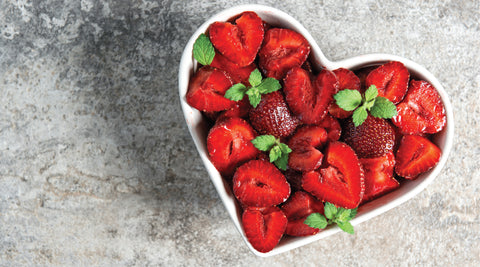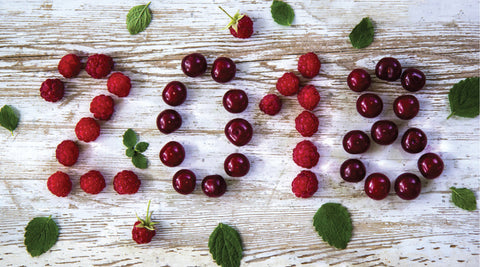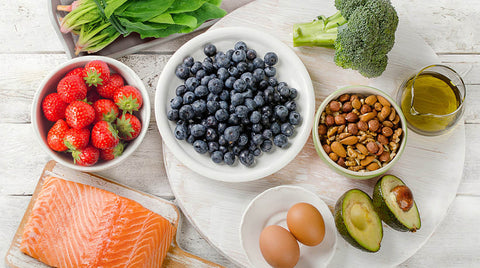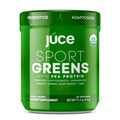Your heart just may be the most important organ you have. Sure, they’re all vital, and they all work together. But if we were forced to pick one as the most important, it’s got to be the heart.
One of the reasons we’re giving it number one status is because heart disease is still the number one cause of death in the U.S. for both men and women. It’s also number one because what’s good for your heart, is usually good for the rest of your body.
In other words, take care of your heart, and the rest of your body will likely fall in line.
Let’s quickly look at two important contributing factors for heart disease: free radicals and inflammation.
Chronic inflammation provides a foundation for many diseases. It also causes a buildup of fatty, cholesterol-rich plaque, also known as atherosclerosis, or clogged arteries.
Free radicals contribute to arterial plaque as well. But they’re also a normal part of life. And as long as you have more antioxidants—which combat free radicals—than free radicals, you’ll be more likely to keep your heart healthy.
For most of you, eating healthy isn’t much of a riddle. Processed foods bad. Organic, whole foods good. However, when it comes to heart health, there are a few all-stars you should consider putting on your next grocery list.
Strawberries & Blueberries
In what may be one of the largest studies ever, Harvard’s School of Public Health examined 93,600 women ages 25-42 over an 18-year span. The reason they only studied younger women was to eliminate heart risk factors that are more dependent on age.
What they discovered is pretty shocking. The women who ate the fewest blueberries and strawberries also had an increased risk of having a heart attack. While those who ate the most berries were 34% less likely to have one.
As for the magical amount needed to see such benefits, the researchers determined that just three or more servings per week could reap enormous heart health benefits, potentially lowering the risk of heart disease by 32 percent.
You can't go wrong with "Berry" in the name:
A Tufts University study found that berries can reverse slow-downs in the brains ability to process information.
Citrus Fruit
Orange peel and lemon peel, in particular, are pretty loaded with heart health nutrients—fiber, vitamin C, phytonutrients, and flavonoids.
Vitamin C is a strong antioxidant that has been well-studied for its cardio benefits. But it’s another little known antioxidant—a flavonoid known as nobiletin that’s unique to citrus peels—that’s showing even more promise as both an antioxidant and an anti-inflammatory.
Pomegranates
Pomegranates improve heart health in three ways …
- They reduce oxidative stress from free radicals
- They lower LDL (bad) cholesterol
- They support the production of nitric oxide
Nitric oxide production is important, as it improves blood circulation, and prevents clotting, both of which are vital for a happy and healthy heart.
Pomegranates also contain a special compound—punicalagins—that has strong antioxidant and anti-inflammatory properties.
In fact, one recent study found that pomegranate juice was better at neutralizing the effects of free radicals on cell membranes than grape juice, red wine, vitamin C, and vitamin E.
Broccoli
This superstar vegetable contains ample amounts of fiber, vitamins C and A, potassium, and a few B vitamins, all of which contribute to broccoli’s ability to reduce cholesterol and keep blood vessels strong.
Broccoli also has its own special compound—sulforaphane—which acts as a strong anti-inflammatory. And those B vitamins help to reduce excess homocysteine levels in the blood. Homocysteine is an amino acid that can increase the risk of coronary heart disease if levels get too high.
Spinach
Obviously, the greatest benefit of eating more spinach is the development of massive forearms like Popeye. But spinach is also keen on protecting the heart.
The high amounts of folate in spinach help to lower those dreaded homocysteine levels that can contribute to heart disease and stroke. While the potassium and magnesium in spinach helps to lower blood pressure.
It’s also packed with strong antioxidants like vitamin C, lutein, and beta carotene, giving Popeye’s favorite veggie the right nutrient mix to clean up the oxidative damage from free radicals.
“POTASSIUM AND MAGNESIUM IN SPINACH HELPS TO LOWER BLOOD PRESSURE”
Kale
It may be time to settle this once and for all. The question on your mind can no longer be ignored: which is healthier, spinach or kale?
Well, kale has three times the vitamin C, and a little more vitamin K, while spinach has more vitamin A, fiber, and protein. The edge might go to kale for more heart-friendly flavonoids. Otherwise they’re both similarly beneficial.
The one thing they both do equally well, as do all leafy greens, is help lower inflammation. The effects of lowering chronic inflammation have far-reaching benefits everywhere in your body, but especially when it comes to your heart.
Tomatoes
Talk about an under appreciated vegetable. People like eating them, but few consider them nutritionally special. Which makes no sense, given all the heart-healthy nutrients that you’ll find in tomatoes.
Tomatoes are high in folate, which we all know by now lowers homocysteine levels and also our chances of getting coronary heart disease. Tomatoes are also high in potassium, which aids in lowering blood pressure. And they contain a little antioxidant called lycopene.
Lycopene is responsible for the tomato’s red color, and for much of its health benefits. It’s been shown to lower LDL cholesterol, and it helps to prevent blood from clotting, which aids in stroke prevention.
On top of all that, tomatoes contain generous amounts of vitamins A, C, and E—all strong antioxidants on their own, but kind of like the Wonder Twins when paired together.
Flaxseed
Flax seed may just be the original superfood. It’s fallen on hard times lately, with all the focus on chia and hemp. But pound for pound, when it comes to heart health, we’d put our money on the mighty flax.
Flax seeds are high in fiber, which helps to lower cholesterol. They’re also high in omega 3 fatty acids, which have been shown to lower chronic inflammation. But it’s a type of antioxidant known as lignans that truly make flax seeds special.
Lignans are a polyphenol, and besides being very capable of fighting the effects of free radical damage, they’re also especially skilled at lowering the risk of heart disease, according to one very large study.
The Big Heart Healthy Foods Conclusion
Is this the definitive list on all foods related to heart health. Probably not. Is it still the best one you’ve seen in years? Of course.
We’d like to leave you with a novel idea that’s somehow not as prominent as it should be: Let food be your medicine and medicine be your food. It really can be that simple.
Now, if we could just make self-control that simple. Because … Sometimes being healthy is simply the difference between driving past a McDonald’s, and driving thru a McDonald’s.
ABOUT THE AUTHOR
Nick Mistretta is a freelance copywriter, content marketer, and author of the ebook, 25 Superfoods For Super Health. He helps small businesses turn strangers into friends, friends into customers, and customers into loyal customers.
- Prebiotics and Fiber provide KEY nutrients for a Healthy Heart.
- Antioxidants improve cardiovascular function.
- 64 organic superfoods.
- The nutritional equivalent of 4 servings of fruits and veggies in each scoop.
- Sodium FREE and low in organic cane sugar.




